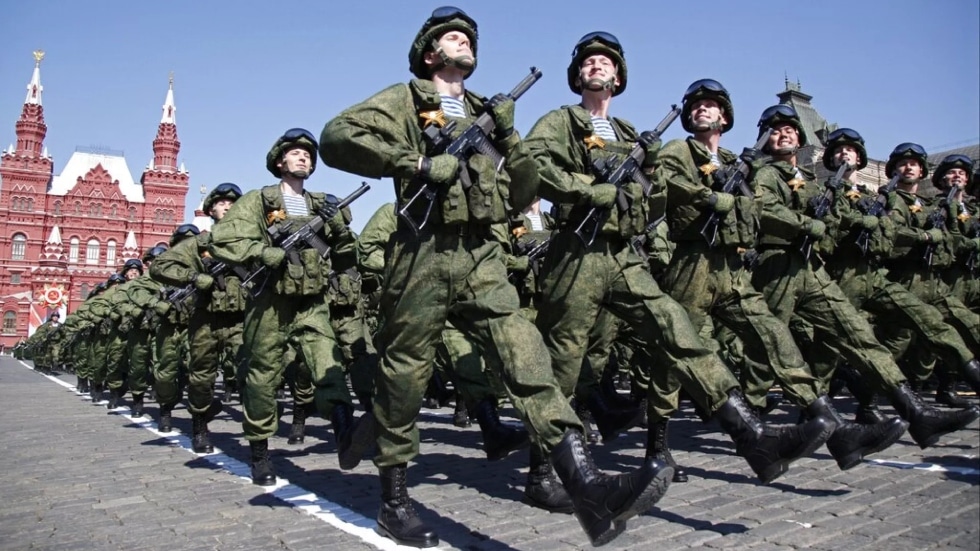As the North Atlantic Alliance wraps up its massive Nordic Response 24 war drills, Russian President Vladimir Putin is threatening to deploy troops and weapons systems alongside his country’s shared 800-mile border with Finland.
This comes amid a rash of hostile rhetoric in NATO capitals about sending alliance troops to Ukraine as Kiev’s war effort is failing, including from heads of state such as French President Emmanuel Macron. Helsinki recently joined NATO and Finnish Prime Minister Petteri Orpo is talking up increased military spending aimed at Russia.
On Wednesday, in an interview with Russian state media, Putin said the decision by Stockholm and Helsinki to join NATO in the wake of Moscow’s invasion and the US-led alliance’s proxy war was an “absolutely senseless step from the point of view of ensuring their own national interests.”
He continued, “We generally had ideal relations with Finland. Simply perfect. We did not have a single claim against each other, especially territorial, not to mention other areas. We didn’t even have troops; we removed all the troops from there, from the Russian-Finnish border.”
The Russian leader went on to conclude, “However, it is up to them to decide. That’s what they decided. But we didn’t have troops there, now we will.”
The NATO alliance is currently carrying out major war games in Finland, Sweden, and Norway with 20,000 troops from 13 countries, fifty naval vessels, and 100 warplanes. At the same time, Orpo is warning the Kremlin is preparing for a “long conflict with the West.” Speaking to the European Parliament, the Finnish leader implored member states to increase military spending and coordinate against Russia.
“[Russia] represents a permanent and essential military threat to Europe… If we, as a united Europe, fail to respond sufficiently to this challenge, the coming years will be filled with danger and the looming threat of attack,” Orpo said.
“Russia is not invincible,” he then declared. Orpo added that the European Union must be responsible for its own defense and not be held hostage by American elections, suggesting Republican front-runner Donald Trump would not be as supportive of the Washington-led military bloc.
Denmark, a founding member of NATO, announced on Wednesday that it would be boosting its military budget by nearly $6 billion over the next five years. Al Jazeera reported, “The increased funding will be used both to boost Denmark’s military capacity and provide aid to Ukraine. It will also go towards an expansion of conscription, which will be extended from four to 11 months and will include women for the first time.”
As Ukraine enters the third year of its war with Russia, it has lost 20% of its territory and depleted its stocks of ammunition, artillery, air defenses, and other equipment. Kiev also relies on a conscription regime to fill its ranks, but the Ukrainian military is facing a substantial manpower shortage, roughly half a million troops have been killed or seriously wounded. The average age of a soldier is now at least 43.
CNN reported this week that a NATO intelligence assessment reveals Russia’s production of artillery is three times the capacity of the entire NATO alliance. Efforts to “weaken” Russia’s military and economic strength have failed. EUROCOM chief and Supreme Allied Commander of NATO General Christopher Cavoli explained to Congress last year, Russia’s navy and air force have only taken negligible losses and its ground forces are “bigger today” than when the war began.
In the meantime, London is supplying Ukraine with 10,000 drones. Kiev is using such weapons to target multiple regions in Russia leading up to the country’s presidential election just days away.
Washington announced a $300 million military aid package for Kiev this week which includes cluster bombs, banned by more than 100 countries. These weapons are notorious because they spread large numbers of small submunitions or bomblets across a target area which do not all explode on impact, they can maim and kill civilians for years and decades after a war has ended.
This article was originally featured at Antiwar.com and is republished with permission.








